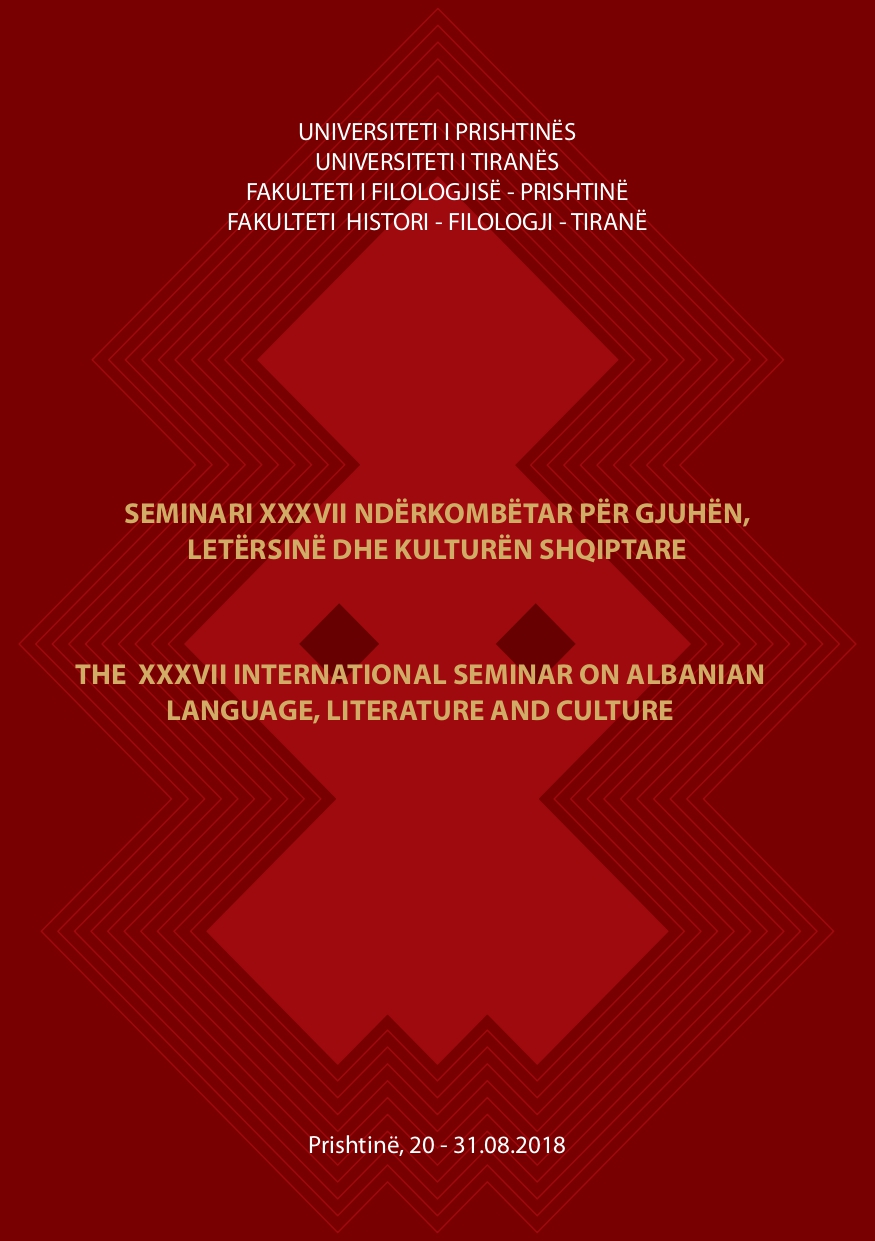Retorika filozofike në kërkim të "aletheia"-s (a)personale
The philosophic rhetoric in search of the (im)personal "aletheia"
Author(s): Edlira Macaj TonuziSubject(s): Philosophy, Language and Literature Studies, Studies of Literature, Albanian Literature, Theory of Literature
Published by: Univeristeti i Prishtinës, Fakulteti i Filologjisë
Keywords: 'The Monk'; rhetoric; philosophy; narrative; interpretation; Neoplatonism;
Summary/Abstract: The literary narrative carries inside a lot of discourses, one of which enriches it specifically. In the novel The Monk there is a defined borderline (or a transformed one?) between the artistic discourse found in the traditional rhetoric, and in the philosophical rhetoric intended so. The paper’s purpose tends to understand the active role of this specific rhetoric used in the novel, which by serving as an integral part of the fiction structure becomes a core subject, but it also becomes an instrument for the deliberation of the individual (-narrator) from the conventional narrative in which have been enlighten other elements of novel more than the 'thinking' process itself. Here it is the turn of this process; there is an investigation about the why-s and an explanation of the how-s questions and of many other issues which are of a personal and a universal importance. The object takes care of the way they are searched; how to unfoldthe poetics of 'aletheia', its subjective nature and more.The method used on is the text analysis and the philosophic-aesthetical interpretation.The latter one is considered as an interpretation of the philosophical rhetoric, as a hermeneutic type, a communicative, a semiotic one, etc.The hypothesis is related to the idea that the activation of this kind of rhetoric corresponds to a model of a rhetorical stylistics composed by the aspects of competence (structure) and performance (effect), de facto, much more associated with the effect than with the conventional model.The paper advocates that this choice follows two basic principles: humanism and criticism. The first deliberates thinking process from any external authority through argument and persuasion, the second puts on balance, or doubt, the beliefs and convictions, a discussion which sharps the debate between the argument and the revelation of truth. This aletheia – or (self) disclosure traspasses through the spiritual nature of Neoplatonism.
Journal: Seminari Ndërkombëtar për Gjuhën, Letërsinë dhe Kulturën Shqiptare
- Issue Year: 2018
- Issue No: 37.2
- Page Range: 183 - 198
- Page Count: 16
- Language: Albanian

